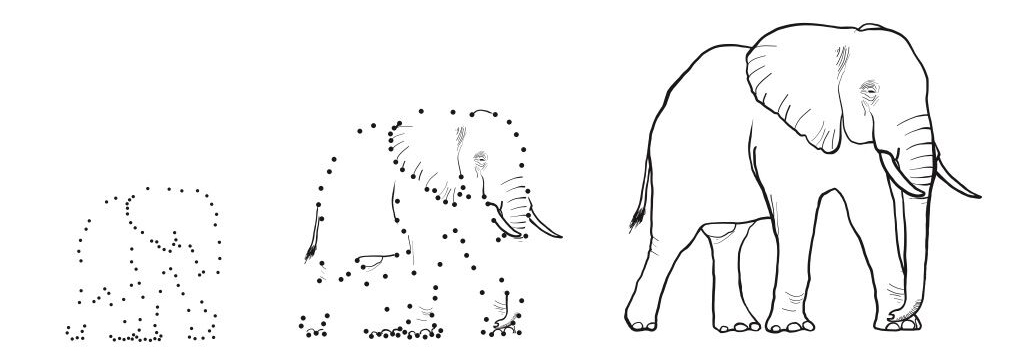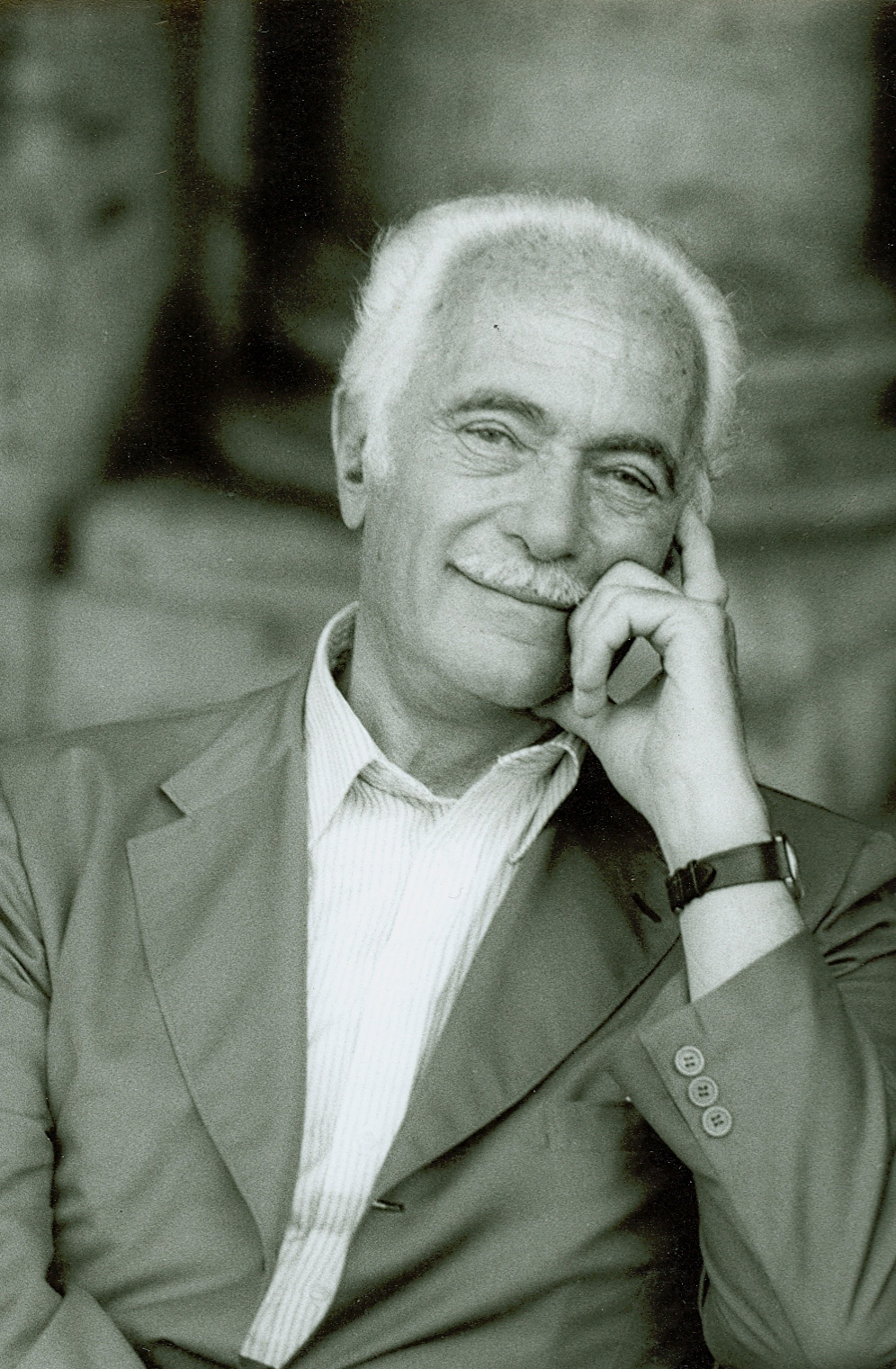CONVERSATIONS
Contents
Federation through Conversations

Changing the way we speak
Changing the subject
You might consider, just as we do, the news about Donald Trump or some terrorists as nothing really new. Why give those people the attention they don't deserve? Why use the media to spread their messages? If you are entertaining such thoughts, then you might be ready for some really good news!
Also five centuries ago an abundance of daily spectacles occupied the people's minds. And yet when we look back, what we see is Leonardo, and Copernicus... We see the rebirth of the arts and the emergence of the sciences. We see those large and slow events because they give meaning and relevance to all particular ones. We notice them even from this distance because they were so spectacularly large – and that's also why the people living at that time failed to notice them! But how much more spectacular will it be to witness this sort of development in our own time!
Although we don't talk about him directly, the elephant in the above ideogram will be the main theme of all our conversations. It is a glimpse of him that we want to give and have by talking about all those people and things. And when we talk about the elephant, you should imagine the exotic large animal appearing in a room full of people – not today, but five centuries ago, when perhaps some of those people had heard of such a creature, but none of them had ever seen one yet. The elephant in the room is a breath-taking sensation! We use this visual metaphor to point to the whole big thing – the Renaissance-like change that now wants to emerge. The elephant is invisible, but we will have glimpses of him as soon as we begin to 'connect the dots'. And isn't that what we've been doing all along!
Changing the protagonists
This is how we can also begin to give due attention to our giants; this is how we can truly understand what they were saying, this is how we can appreciate the value of what they were trying to show us. If earlier we heard them talk about "the fan", "the hose" and "the rope", we now begin to understand that what they were talking about the ears, the trunk and the tail, and of other functional elements of the big animal. It is in the context of the whole big thing that the insights and the contributions of our giants will begin to truly make sense. We will then be able to not only appreciate each of their insights as a sensation, but also the fact that we've ignored that insight as a new kind of spectacle or scandal. And isn't this where our attention, and those feelings, will most naturally and most effectively belong?
So let's begin right away – let's begin with the insights of a giant whose vision might well frame the exploration of the larger societal paradigm shift, which we will here begin.
"The human race is hurtling toward a disaster. It is absolutely necessary to find a way to change course", Aurelio Peccei (the co-founder, firs president and the motor power behind The Club of Rome) wrote this in 1980, in One Hundred Pages for the Future, based on this think tank's first decade of research.
Peccei was an unordinary man; during the WW2 he was captured by the Gestapo and tortured for six months, without revealing his contacts. Peccei was also an uncommonly able business leader. While serving as the director of Fiat's operations in Latin America, and securing that the cars were there not only sold but also produced, Peccei established Italconsult, a consulting and financing agency to help the development of the Third World countries. When the Italian technology giant Olivetti was in trouble, Peccei was brought in as the president; and he managed to turn Olivetti's fortune around. And yet the question that most intensely preoccupied Peccei was that much larger one just mentioned – the nature of our civilization's condition; and the future toward which it was headed. And so he applied the best of his ability to see that this large and grave issue is properly understood, and handled.
Here is one of the ways in which Peccei later framed the answer (in 1977, in The Human Quality, his personal reflections on the human condition and his recommendation for handling it):
Let me recapitulate what seems to me the crucial question at this point of the human venture. Man has acquired such decisive power that his future depends essentially on how he will use it. However, the business of human life has become so complicated that he is culturally unprepared even to understand his new position clearly. As a consequence, his current predicament is not only worsening but, with the accelerated tempo of events, may become decidedly catastrophic in a not too distant future. The downward trend of human fortunes can be countered and reversed only by the advent of a new humanism essentially based on and aiming at man’s cultural development, that is, a substantial improvement in human quality throughout the world.
You may have heard about Peccei before reading these pages, but the chances are that you have not. It is most interesting that his core message was not heard even by the people whose profession is to ...
You will now have no difficulty understanding why here – in contrast to the rest of this website where we mostly talked about the changes in knowledge work – our protagonists here will be the giants in the humanities. And where our primary interest will be to understand the way in which we've been evolving as culture and as society. Our goal will be to reach insights in the light of which we'll see our own times and mores in a similar way we may see the zeitgeist of the Late Middle Ages – ripe for change.
Changing the manner of speaking

Connecting the dots could be an engaging pastime on a rainy Sunday afternoon; what sort of picture will emerge? But this is of course nothing compared to engaging in this activity collaboratively and collectively; and when the picture that is emerging is a whole new direction for us! <p>But even the conversations about the most relevant themes – about the challenges that mark our era – can be completely different than what they are. Weary about talking about the CO2 quotas? Disheartened by how slow the progress has been? Also then – and especially then – you'll be glad to hear that there is a whole different way. That we can be building a new world instead of trying to fix the old one. And that this engages the best of our enthusiasm and our creativity, instead of our strife and worries.
A difference that makes a difference
Although we shall not talk about him directly, the elephant in the above ideogram is the main protagonist of our stories. It is a glimpse of him that we want to give by talking about all those people and events. This visual metaphor represents the whole big thing – the Renaissance-like change that now wants to emerge. The elephant is invisible, but we will have glimpses of him as soon as we begin to 'connect the dots'. And that's what we are about to do.

